Public Health Impact
Access to Medicines
Pfizer believes that all individuals deserve access to quality health care and the opportunity to lead healthy lives.
We combine creative commercial strategies with philanthropic approaches to create a sustainable and meaningful impact on global health.
Going Beyond Prescription Assistance
In the United States (U.S.), Pfizer RxPathways® empowers patients in need by connecting them to assistance programs so they can get access to Pfizer medicines prescribed by their doctor.
This year, in response to the growing complexity of today's health care reimbursement environment in the U.S., Pfizer enhanced Pfizer RxPathways so patients can now consult with a Pfizer Medicine Access Counselor who will connect them to the full range of Pfizer assistance programs and resources.
Patients can visit www.PfizerRxPathways.com or dial the toll-free number 1-844-989-PATH (7284) to speak with one of Pfizer's Medicine Access Counselors. The counselors are specially trained to work with each patient to understand their unique situation and guide them to the Pfizer programs or resources that can best help them.
Our programs include:
- Pfizer Savings Program1 – Pfizer medicines at a savings through pharmacies, regardless of income
- Pfizer Insurance Support – Clarification on insurance coverage and reimbursement options for certain medicines
- Pfizer Patient Assistance Program2 –Free Pfizer medicines to eligible patients through their doctor's office, at home or via a co-pay card3
- Free Medicine through Health Centers and Hospitals – Free medicines for eligible, uninsured patients through select health centers and hospitals4
- Treatment-Specific Patient Medicine Support Hubs – Comprehensive support services for specific oncology and specialty medicines
- Brand Co-Pay Cards – Assistance for eligible patients with their co-pay costs5
Medicine Access Counselors will also connect patients to industry programs and resources, such as:
- Partnership for Prescription Assistance – Offers a gateway for patients to more than 475 private and public assistance programs
- Rx Outreach – A non-profit charitable organization that provides eligible patients with access to more than 500 medications at an affordable cost
- NeedyMeds – A non-profit information resource dedicated to helping people locate assistance programs to help them afford their medications and other health care costs
In 2016 alone, we helped more than 250,000 patients receive over 1.7 million Pfizer prescriptions for free or at a savings.6
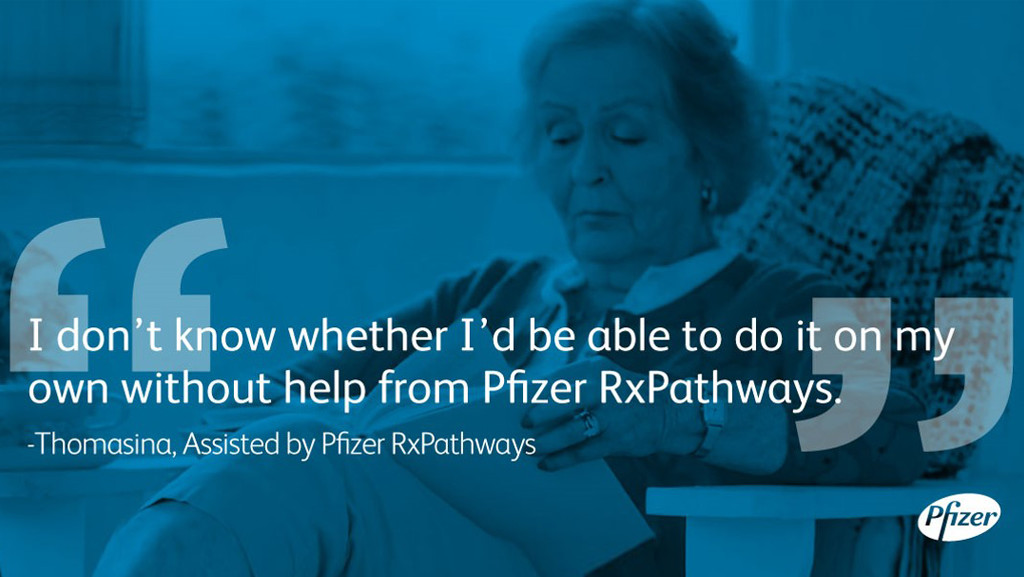
Working to Eliminate Trachoma in Developing Countries
Founded in 1998 with a grant from Pfizer and the Edna McConnell Clark Foundation, the International Trachoma Initiative (ITI) aims to meet the World Health Organization's (WHO) call to eliminate trachoma, the world's leading infectious cause of blindness, by 2020.
Since the partnership was formed, this initiative has treated more than 100 million people in 36 countries. Pfizer, through ITI, has donated more than 600 million doses of the antibiotic Zithromax® (azithromycin) for the treatment of trachoma. In 2016 alone, Pfizer donated and shipped more than 120 million doses.
On November 14, 2016, the WHO validated that the Moroccan government has eliminated trachoma as a public health problem, making it the second country in the world to achieve this designation after Oman in 2012.
Pfizer's donation of Zithromax, in partnership with ITI, as well as the implementation of the WHO-recommended SAFE strategy (Surgery to treat the blinding stage of the disease, known as trichiasis, Antibiotics to clear infection, Facial cleanliness, Environmental improvement including better access to water and sanitation to help reduce transmission), played pivotal roles in accelerating Morocco's ability to reach this milestone.
Learn more about how we are working to improve global health.
Responding to a Global Need through Humanitarian Assistance Program Expansion
Pfizer colleagues around the world work collaboratively with governments, non-governmental organizations (NGOs), civil service organizations, health care providers, and payers to enable prevention and treatment of diseases by making medicines and vaccines available to as many people as possible. This includes tiered pricing strategies and humanitarian assistance in low- and middle-income countries who need it the most.
This year, Pfizer announced a major expansion of our humanitarian assistance program, enabling broader access to its vaccine, Prevenar 13® (Pneumococcal 13-valent Conjugate Vaccine [Diphtheria CRM197 Protein]). In humanitarian emergency settings, Pfizer is offering the new multi-dose vial (MDV) of Prevenar 13 at what will be the lowest prevailing price (currently $3.05 per dose). Further, given the acute need for aid on the ground, Pfizer will donate all sales proceeds for the first year of this program to humanitarian groups undertaking the difficult work of reaching vulnerable populations in emergency settings.
Through our work with Gavi, the Vaccine Alliance, we have also pledged to supply 740 million doses of Prevenar 13 through to 2025 to infants at an affordable price in the world’s poorest countries with significant burden of disease.
Additionally, Pfizer donates a variety of products to assist with humanitarian emergencies, including essential health and over-the-counter (OTC) medicines. For example, in response to Hurricane Matthew and a cholera outbreak in Haiti, Pfizer donated antibiotics and sterile injectable medicines to various NGOs providing health care to affected populations.
Addressing Public Health Emergencies
To address the growing Zika epidemic in 2016, Pfizer and the Pfizer Foundation7 worked closely with global health organizations and local authorities to provide resources in support of prevention, monitoring and surveillance efforts surrounding Zika in the continental U.S., Puerto Rico and Latin America. The Pfizer Foundation donated $4.1 million through grant funding to the Centers for Disease Control and Prevention (CDC) Foundation, Population Services International and the Pan-American Health Organization, as well as to the Florida Department of Health and the Texas Department of State Health Services. Pfizer’s contribution included an in-kind donation of up to 170,000 doses of our long-acting contraceptive product to the CDC Foundation’s Zika Contraception Access Network (Z-CAN) initiative in Puerto Rico.
Expanding Access to Cancer Care in Low- and Middle-Income Countries
Two years ago, Pfizer began a new collaboration with The Max Foundation, launching a pilot procedure to handle requests for Sutent® (sunitinib malate) for uninsured and underinsured cancer patients living in lower-income economies outside of the U.S. where significant access hurdles exist. Since the program’s initiation, 49 patients with renal cell carcinoma and gastrointestinal stromal tumor – living in nine low-income or lower-middle-income countries – have been able to access ongoing treatment for free through the program. Pfizer is continuing to work with The Max Foundation to find ways to get our products to cancer patients who need them in lower-income economies.
Diflucan Partnership Program
Since 2000, the Diflucan® (fluconazole) Partnership Program has helped to treat two fungal opportunistic infections, acute cryptococcal meningitis and esophageal candidiasis, in individuals living with HIV/AIDS in low- and middle-income countries with a high prevalence of HIV.
Advancing the Health of Women and Children
The Pfizer Foundation supports innovative programs to improve access to immunization and family planning, including programs that integrate the delivery of immunizations and family planning services in an effort to address barriers and improve access to care for women and children in the developing world. Since 2014, the Pfizer Foundation has provided $12 million to advance this work with partners across Asia and Africa.
Beyond our Pfizer Foundation work, we’ve been making strides as a company in this area as well. Through a Pfizer Inc. collaboration with the Bill & Melinda Gates Foundation and the Children’s Investment Fund Foundation, we are helping broaden access to Pfizer's long-acting injectable contraceptive, Sayana® Press (medroxyprogesterone acetate), for women most in need of contraceptive options in some of the world’s poorest countries. Through this collaboration and the support of a public-private sector consortium, we were able to provide Sayana Press for one U.S. dollar per dose to qualified purchasers. Since the product’s launch in 2014, over six million doses of Sayana Press have been shipped to 20 developing countries.7
Sayana Press is approved for administration by self-injection in nearly 20 countries in both the developed and developing worlds.
Examples of women’s and children’s health initiatives the Pfizer Foundation has supported include:
- An innovative project in Uganda and Ethiopia with the International Rescue Committee to improve last-mile access to, and utilization of, immunization and family planning. The project integrates these services at health facilities, equips health care workers with a simple mHealth data platform to identify children that miss immunizations, and includes individually tailored color-coded health calendar tools to track the five critical health service milestones during the pre- and post-natal periods.
- An initiative in Kenya with World Vision to help improve health outcomes for mothers and their children by training health care workers to address a comprehensive set of health interventions at immunization visits and engaging families and community leaders on the important role women's health plays in community and family health. A key element of this work is engagement with men in the community to increase their knowledge on the importance of healthy birth spacing and immunization.
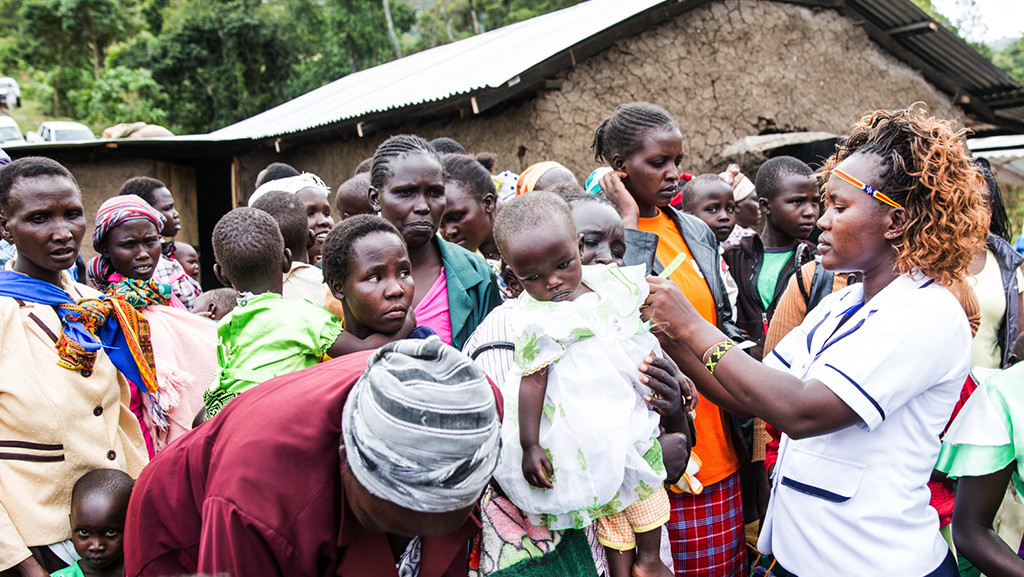
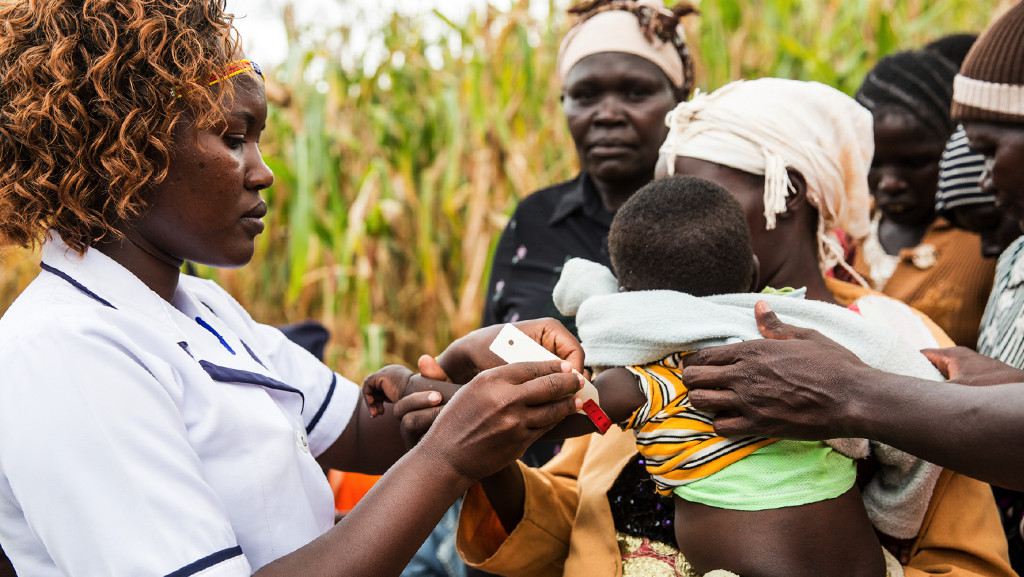
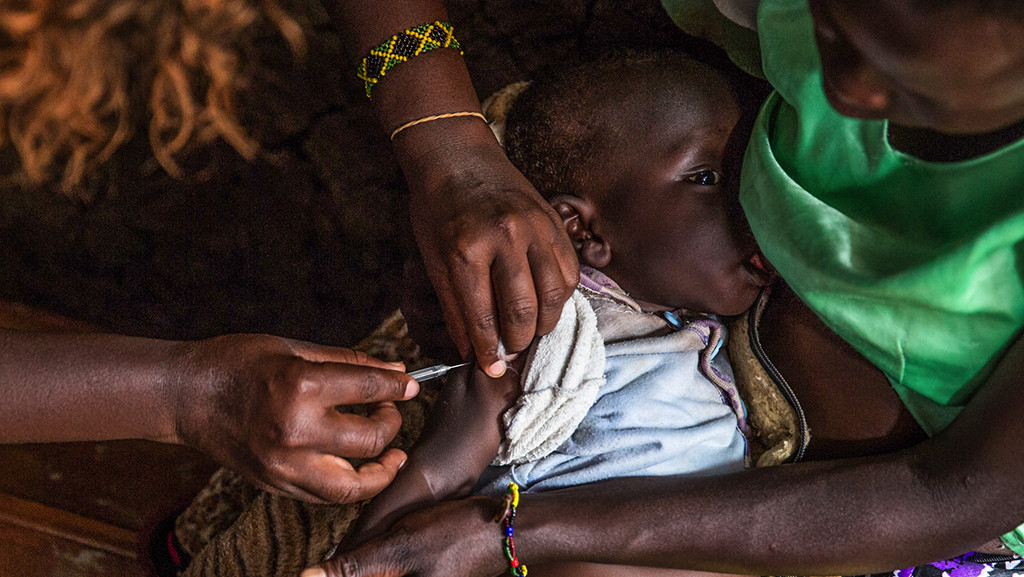
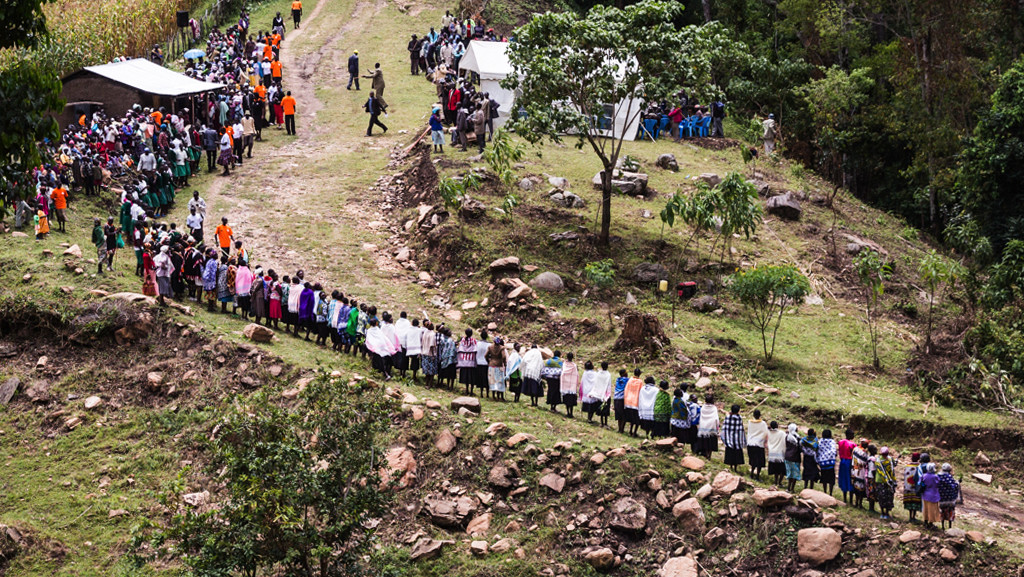
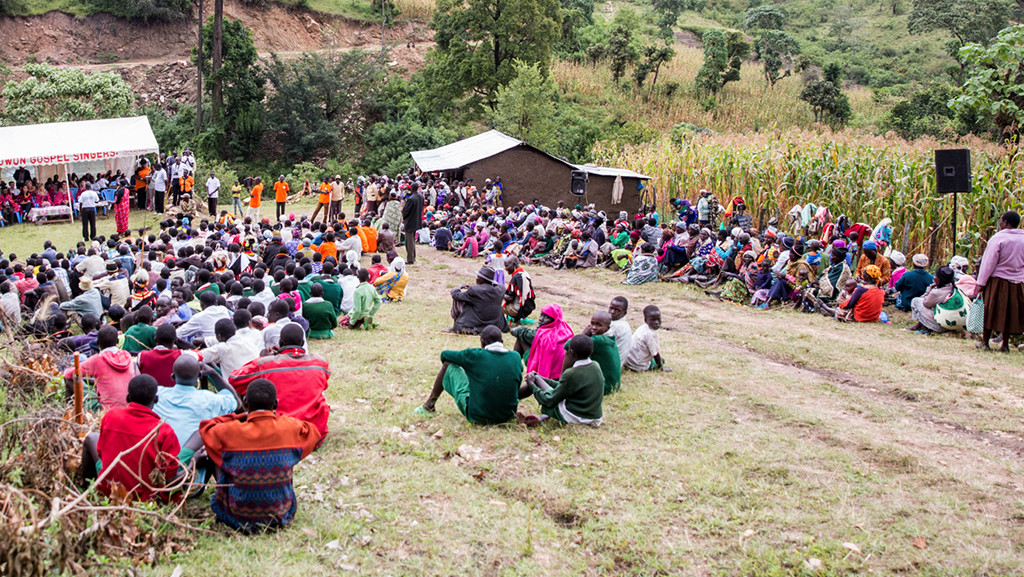
Expanding Health Care Infrastructure in Underserved Communities
An individual’s ability to access quality health care is often limited where infrastructure is weak or non-existent. By supporting collaborative and entrepreneurial approaches that aim to build and improve health infrastructure, we are giving organizations and individuals the skills and resources they need to drive better global health outcomes.
In 2016, the Pfizer Foundation provided funding and technical assistance to 20 organizations in Africa, Asia and Latin America through Global Health Innovation Grants (GHIG), a program that helps increase health access and foster local innovation.
The Pfizer Foundation's Global Health portfolio has grown to 30+ projects spanning 25+ partners and 15+ countries, impacting more than 3 million patients.
Disclaimers
The Pfizer Savings Program is not health insurance.
The Pfizer Savings Program is not health insurance. For a complete list of participating pharmacies, click here or call the toll-free number 1-866-989-PATH (7284). There are no membership fees to participate in this program. Estimated savings range from 36 percent to 75 percent, and depend on such factors as the particular drug purchased, amount purchased and the pharmacy where purchased.
The Pfizer Patient Assistance Program is a joint program of Pfizer Inc. and the Pfizer Patient Assistance Foundation™.
The Pfizer Patient Assistance Program is a joint program of Pfizer Inc. and the Pfizer Patient Assistance Foundation™. The Pfizer Patient Assistance Foundation is a separate legal entity from Pfizer Inc. with distinct legal restrictions.
Co-Pay Assistance provided through the Pfizer Patient Assistance Program is not health insurance.
Co-Pay Assistance provided through the Pfizer Patient Assistance Program is not health insurance. For a complete list of participating pharmacies, call 1-844-989-PATH (7284). No membership fees apply. Patients who participate in any federal or state programs, such as Medicaid or Medicare, are not eligible for co-pay assistance. However, these patients may be eligible to receive their medicine for free through the Pfizer Patient Assistance Program. Terms and conditions apply.
Product availability varies by institution and eligibility.
Product availability varies by institution and eligibility.
Terms and conditions apply.
Terms and conditions apply.
Data on file. Pfizer Inc., New York, NY.
Data on file. Pfizer Inc., New York, NY.
The Pfizer Foundation is a charitable organization established by Pfizer Inc.
The Pfizer Foundation is a charitable organization established by Pfizer Inc. It is a separate legal entity from Pfizer Inc. with distinct legal restrictions.
How our work in this area is supporting the Sustainable Development Goals
Good Health and Well-Being
We promote holistic solutions to meet the health needs of the underserved while investing in the well-being of the global community.
Gender Equality
We seek to empower and mobilize women around the world through partnerships aimed at ensuring access to quality health care, including newborn immunizations and family planning services.
Clean Water and Sanitation
Through public-private partnerships like the International Trachoma Initiative, as well as efforts to responsibly manage our water consumption and disposal, we aim to advance public health by improving water supply, sanitation and hygiene.
Industry, Innovation and Infrastructure
We catalyze scientific innovation through cutting-edge research initiatives and unique, results-driven partnerships in order to deliver novel medicines, vaccines and know-how to individuals around the world.
Partnerships for the Goals
Through innovative partnerships, including collaborations with non-governmental organizations (NGOs), governments, foundations, social entrepreneurs and colleagues, we seek to fuel creative approaches that accelerate progress and improve health care.
